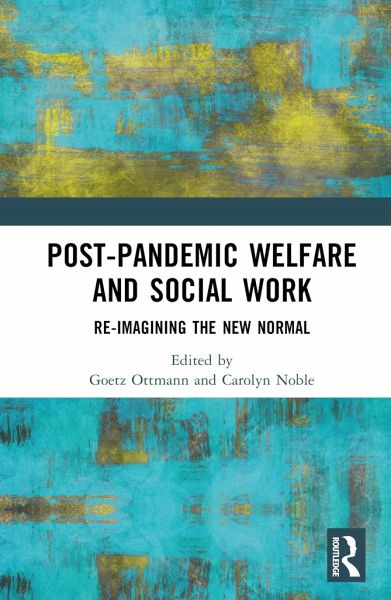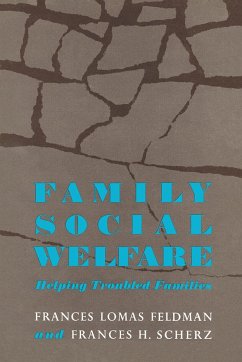
Post-Pandemic Welfare and Social Work
Re-imagining the New Normal
Herausgeber: Ottmann, Goetz; Noble, Carolyn
Versandkostenfrei!
Versandfertig in 1-2 Wochen
170,99 €
inkl. MwSt.

PAYBACK Punkte
85 °P sammeln!
The COVID-19 pandemic represents a critical juncture in the development of the welfare state affirming its importance for its citizens' economic, health and wellbeing, and safety, especially for its most vulnerable populations. It demonstrated that the crisis preparedness that is crucial for an effective protection of its citizens, the ultimate purpose of the welfare state, unquestionably exceeds the narrow horizon of a corporatised welfare industry with its singular focus on the maximisation of profit¿for the elites and cost containment for the government. Social workers need to engage with ...
The COVID-19 pandemic represents a critical juncture in the development of the welfare state affirming its importance for its citizens' economic, health and wellbeing, and safety, especially for its most vulnerable populations. It demonstrated that the crisis preparedness that is crucial for an effective protection of its citizens, the ultimate purpose of the welfare state, unquestionably exceeds the narrow horizon of a corporatised welfare industry with its singular focus on the maximisation of profit¿for the elites and cost containment for the government. Social workers need to engage with the contradictions and tensions that spring from underfunded welfare services and engage in the political struggle over a well-resourced welfare state. Contributors to this book take on this challenge. By tracing the various contradictions of the pandemic, the contributors reflect on new ways of thinking about welfare by exploring what to keep, what to challenge and what to change. By highlighting important challenges for a social justice-focused response as well as exploring the many challenges exposed by the pandemic facing social work for the coming decades, contributors critically outline pathways in social work that might contribute to the shaping of a less cruel and more capable welfare state. Using case-studies from Indigenous and non-Indigenous Australia, Italy, Slovenia, Estonia, Sweden, Spain, South Africa, Canada, Sri Lanka, Zimbabwe, China and the United States, the book features 19 chapters by leading experts. This book will be of interest to all social work scholars, students and practitioners, as well as those working in social policy and health more broadly.












